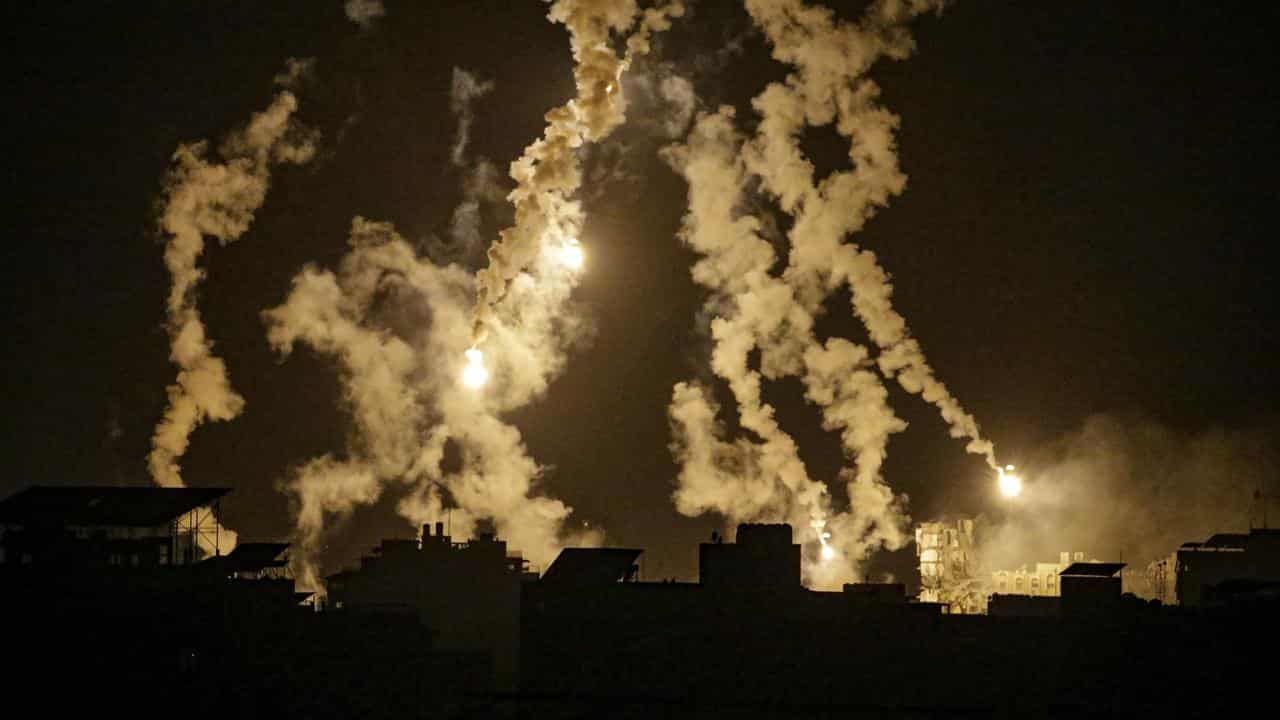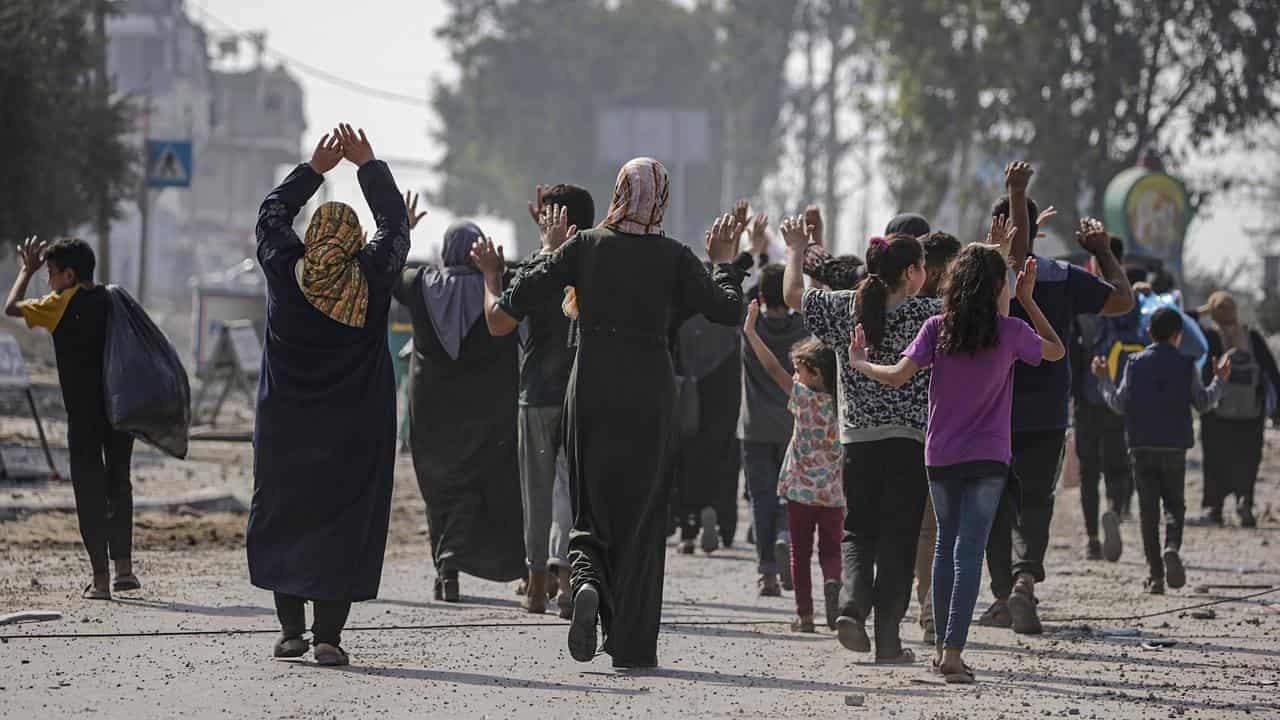
Israeli troops have surrounded Gaza City and cut off the northern part of the besieged territory as communications were lost for several hours across Gaza overnight.
Troops are expected to enter the city Monday or Tuesday, Israeli media reported, and militants who have prepared for years are expected to fight street by street using a vast network of tunnels.
Casualties will likely rise on both sides in the month-old war, which has already killed more than 9,700 Palestinians, according to Gaza’s Health Ministry.
Some 1.5 million Palestinians, or around 70 per cent of the population, have fled their homes since the war began with a bloody Hamas incursion into Israel that killed more than 1,400 people, mostly civilians.
Food, medicine, fuel and water are running low, and UN-run schools-turned-shelters are beyond capacity, with many sleeping on the streets outside.
Israel has so far rejected US suggestions for a pause in fighting to facilitate humanitarian aid deliveries and the release of some of the estimated 240 captives seized by Hamas in its October 7 raid.
It has also dismissed calls for a broader ceasefire from increasingly alarmed Arab countries — including Jordan and Egypt, which made peace with it decades ago.
A Jordanian military cargo plane air-dropped medical aid to a field hospital in northern Gaza, King Abdullah II said early Monday. It appeared to be the first such airdrop of the war, raising the possibility of another avenue for aid delivery besides Egypt’s Rafah crossing with Gaza.

The situation remains dire in the north. Some 800,000 people have heeded Israeli military orders to flee to southern Gaza, even though Israel had continued airstrikes in the area. Strikes in central and southern Gaza — the purported safe zone — killed at least 53 people on Sunday.
Hundreds of thousands remain in Gaza City and other parts of the north. Some 2,000 people, many carrying only what they could hold in their arms, walked down Gaza’s main north-south highway on Sunday during an hours-long window in which the military had encouraged them to flee.
The Israeli military said late on Sunday that it had severed northern Gaza from the south, calling it a “significant stage” in the war. It said a one-way corridor for residents to flee south would remain available.
Communications in Gaza went down late Sunday for the third time in the war, according to the internet access advocacy group NetBlocks.org and the Palestinian telecom company Paltel. Aid workers say the outages make it even harder for civilians to seek safety or even call ambulances.
Food, water and the fuel needed for generators that power hospitals are running low. Gaza’s sole power station was forced to shut down shortly after the war broke out and Israel has allowed no fuel to enter, saying Hamas would steal it for military purposes.
Northern Gaza is facing a severe water shortage, as there is no fuel to pump from municipal wells and Israel shut off the region’s main line.
Over 450 trucks carrying food, water, medicine and other basic aid have been allowed to enter Gaza from Egypt since October 21, but aid workers say it’s insufficient to meet mounting needs in the territory, which is home to some 2.3 million Palestinians.
The war has stoked wider tensions, with Israel and Lebanon’s Hezbollah militant group trading fire along the border.
Four civilians were killed by an Israeli airstrike in south Lebanon late Sunday, including three children, a local civil defence official and state-run media reported. The Israeli military said it had attacked Hezbollah targets in response to anti-tank fire that killed an Israeli civilian. Hezbollah said it fired Grad rockets from southern Lebanon into Israel in response




